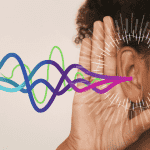Diagnostic Hearing Evaluations
Hear Well. Feel Well
Hearing and Vestibular Evaluations
Hearing Health Care Services
Tympanometry is an examination used to test the condition of the middle ear and mobility of the eardrum (tympanic membrane) and the auditory ossicles (ear bones), by creating variations of air pressure in the ear canal. Many children develop fluid behind the eardrum due to upper respiratory infections. This procedure can make a direct measurement for the middle ear system to rule out the possibility of a middle ear problem. Other disorders are also associated with middle ear dysfunction.
If you are experiencing hearing issues or concerns with your ears in general, it is highly recommended that you see one of our ENT physicians, as it will make a difference in your treatment. See an ENT physician if you have earwax buildup issues, if you believe your hearing loss may be connected to current medical issues, and/or if you have additional symptoms such as ringing in the ears, headaches, sinus pressure, balance or dizziness problems and so forth.
How good is your hearing?
Has any of these been occurred to you?
- Trouble hearing on the telephone
- Difficulty hearing in background noise
- Some people's speech sounds like they're mumbling or just unclear
- Constantly misunderstand what people say
- Often ask people to repeat themselves
- People complain that the TV volume is up too high
- Loud sounds are sensitive and intolerable
- Unable to hear certain sounds that most people can hear
Do not hesitate to contact our office to see an ENT Physician or an Audiologist if you are experiencing any of those hearing concerns.
How well is your hearing?
CONTACT US
Request an Appointment
Hearing and Vestibular Evaluations
Hearing Health Care Services
If you are experiencing hearing issues or concerns with your ears in general, it is highly recommended that you see one of our ENT physicians, as it will make a difference in your treatment. See an ENT physician if you have earwax buildup issues, if you believe your hearing loss may be connected to current medical issues, and/or if you have additional symptoms such as ringing in the ears, headaches, sinus pressure, balance or dizziness problems and so forth.




